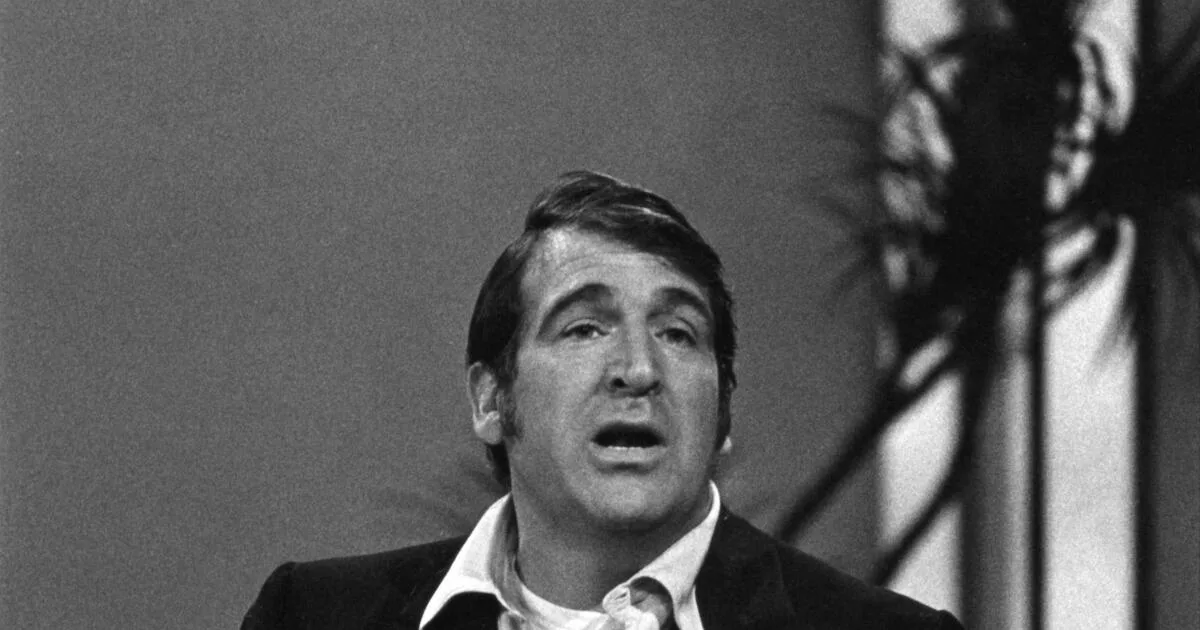Legendary stand-up comedian Shecky Greene – known for his rambling routines, multiple Las Vegas headliners and constant presence on the late-night talk show scene – died Sunday at his Las Vegas home , confirmed his widow, Marie Musso Greene. at the Times. He was 97 years old.
According to Musso Greene, the Vegas headliner died of natural causes.
“It was fun,” Greene’s wife of 41 years said. Las Vegas Review Journal about what it was like to be married to the actor all those years. “He always did humor with whatever he could. He made you laugh and feel good. It was a happy time.
Greene's fast-paced narrative comedy style was often featured on “The Tonight Show Starring Johnny Carson” and “The Ed Sullivan Show” during their heyday on television in the '60s and '70s. Although he enjoyed mainstream success and was very well rewarded for itGreene was also known as a comedian in certain sectors of the comedy world.
This free-form performer, some of whose routines have aged better than others, rose to fame as a comedian in the 1950s. Born Fred Sheldon Greenfield in Chicago in 1926, he served in the Navy during World War II, and enrolled in college but left when he was offered a two-week gig at the Prevue Lounge in New Orleans. (He stayed there for six years, until it burned down.) After performing his stand-up across the Midwest, New Orleans and Miami, Greene landed his first show in Las Vegas in 1954opening for singer and comedic actress Dorothy Shay at the now-closed Last Frontier Hotel and Casino on the Vegas Strip.
Greene was known as an old-school all-around entertainer who told jokes and stories, sang, and seemed to have an endless supply of the types of observations that made the bleakness and confusion of life not only bearable but also funny. He would also do almost anything for their pleasure. Once, at a concert in Florida early in his career, he did a body flip that landed him on his knee, which exploded to the size of a cantaloupe.
He parlayed his early success in Sin City into a five-year headliner at Vegas' famed Tropicana Hotel starting in 1957. Greene then co-headlined a show at the MGM Grand Hotel alongside Dean Martin in 1975.
While thriving on stage, Greene privately struggled with drug, alcohol and gambling addictions.
Greene was a compulsive gambler who ignored the loss of a lot of money. He could afford it, he reasoned, given his stratospheric $100,000 weekly salary in the 1970s. The only other stand-up comedians to draw six figures at the time were Don Rickles, Buddy Hackett, Bill Cosby and Johnny Carson.
In a short time, his escapades became as legendary as his shows. There was the time Greene drove his car into the fountain outside Caesars Palace in Las Vegas, and as security guards surrounded him under towering plumes of water, he rolled down his window and said : “Hold the spray wax, please.
(Or that's how he said it on stage. As Greene told the Times for a profile in 2005, “The cops came and I left. I told Buddy Hackett about it. He gave me the line about spray wax, and I put it into my act. “)
There was also the night Carson, while drinking, chased Greene out of Hackett's house during a party. Greene eventually dove into Hackett's pool fully clothed, got out and returned home. The next day he remembered nothing but remorse – he knew from experience that he was a mean and rowdy drunk.
Later in life, the brash orator found himself too anxious and depressed to return to the stage. He later publicly shared a diagnosis of bipolar disorder.
“You feel like you're in an abyss, a hell,” Greene told The Times in 1994. “There is nowhere to go. You can't go out. You feel alone.
“It was a big effort to make it work,” his wife, Musso Greene, told the Times for the same article. “Socially, we couldn’t go out. He couldn't drive. If a restaurant was too dark, he left. If a restaurant was too bright, he left too. I had to warn our friends to expect anything. You never knew when a panic attack was going to strike.
Green returned to the stage in Las Vegas in 2009 after a prolonged period of absence from performance.
Aside from his stand-up career, Greene has also found success in television and film. In 1981, he played the role of Marcus Vindictus in the classic Mel Brook comedy “World history, part one.” He also appeared in Ron Howard's 1984 Tom Hanks-directed film, “Splash.”
Showing his acting range, Greene appeared in the World War II drama series “Combat!” in the 1960s. He also made appearances in various comedy series over the years, including “The Love Boat”, “Laverne & Shirley”, The Fall Guy, “Roseanne” and “Mad About You”.
Greene is survived by Musso Greene, his third wife, and his daughters, Dorian and Alison.
Former Times staff writer Lawrence Christon contributed to this report.

